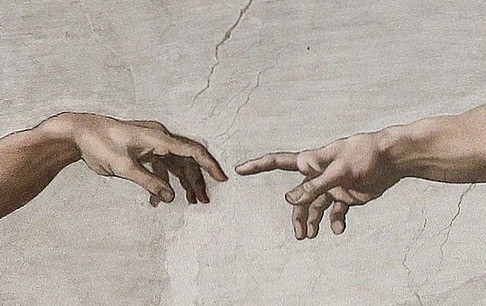You can access the complete article here.
The following list is available as a reproducible PDF download here.
True in the Real World
In the biblical worldview, human beings are special. This contrasts sharply with the belief that all there is resulted from material and random forces over many eons. Yet what do we see when we look around us? We see that indeed, human beings are unique and special in countless ways consistent with biblical teaching.
Here are thirty-one qualities of human beings that set the human race apart from plants and animals, and that testify to God’s having made people in His image.

- People are creative.
- They can take initiative.
- People are productive. They are capable of constructive work.
- People need periodic rest, but here we are not speaking merely of sleep. They enjoy recreation and leisure.
- Human beings have a sense of humor and enjoy laughter.
- They can be competitive, and not just selfishly competitive, either. “Friendly competition” can enhance friendships.
- Speaking of friendships, these are unique in the human family.
- People can plan, setting goals and working to achieve them.
- Human beings can weigh the pros and cons of various situations, and
- they make decisions based on their assessments, exercising free will.
- Men, women, boys, and girls communicate meaningful messages through language, in both oral and written forms.
- People form communities, organizing themselves in systematic units such as neighborhoods, cities, and towns.
- Chief among the social units unique to human beings is the family, designed by God.
- People have the ability to love, and here we’re not talking merely about a sexual drive or desire. We primarily mean a sense of commitment to another person that motivates the people in the relationships. This dedication further instills self-sacrifice and strengthens relational bonds.
- Marriage is unique among human beings. The marriage relationship, a lifelong commitment of one man and one woman, is a special bond that represents and reflects God’s nature in ways that an individual man or woman cannot. In other words, the image of God is represented more fully and completely in a marriage relationship than it is seen in either the man or woman alone.1
- Even though animals and plants reproduce and their offspring grow, the healthy development of human children is enhanced by balanced parenting—both the strong, protective influence of a father and the nurturing touch of a mother.
- People possess intense likes and dislikes that often are shared. They love and appreciate beauty while hating and abhorring ugliness.
- Taking item #17 one step further, individual persons have tastes and preferences, likes and dislikes. Many times these preferences aren’t shared; they’re unique to one individual or to small groups of people.
- Music sets the human family apart from all other living beings.
- People possess an innate sense of moral values. They readily appeal to ideals such as justice, fairness, and integrity.
- They therefore have an awareness of right and wrong and can understand the concept of sin.
- People cherish and exercise inherent rights, including but not limited to the rights of freedom of speech, freedom of expression, freedom of worship, and freedom to own and manage property.
- Elaborating on the last freedom named in item 22, only human beings can appreciate or exercise property rights in their fullest sense.
- Only human beings wear clothes.
- Humans have the ability to empathize, understanding the viewpoint of another individual. Significantly, this is true in even in numerous situations in which the one emphasizing has had very different experiences from those of the other person in the relationship. Of course, some are better at empathizing than others.
- People have the ability to perceive concrete ideas, but they also
- have the ability to understand abstract concepts and ideas.
- People can recognize the value of deferring pleasure and even making sacrifices for the greater good, and of taking risks for the benefit of others.
- Only human beings can be passionate for ideals and idealistic causes.
- People can be generous, freely giving of themselves and their resources for noble causes.
- Human beings are not beholden to their base impulses, even though they have them. They can recognize value in exercising self-control (not doing what comes naturally) and self-discipline (doing what doesn’t come naturally).
Copyright © 2018 by B. Nathaniel Sullivan. All rights reserved.
Note:
1As we said in Upholding God-Ordained Marriage Is One of the Greatest Ways to Uphold the Gospel, Part 10
Within the Godhead…we see both unity and diversity. Not coincidentally, while both men and women are equal in worth and are equally made in God’s image, men reflect His image in a variety of ways that women typically do not, and vice versa. Let’s put it another way. Men and women are both human, yet they are different(also go here, here, and here); there is unity and diversity among them. These are God’s “fingerprints” on His highest creation! The fact that human beings consist of both males and females represents not only the wide range of ways people showcase God’s image, but also the unity and diversity that coexists within the Godhead.
These truths lead us to an inescapable conclusion. While all people, both males and females, are made in God’s image, the one-flesh nature of man-woman marriage reflects His image in ways no individual man or woman can—and in ways no same-sex couple can, whether the state says they are “married” or not. Here we are in no way equating singleness with same-sex marriage. Rather, we’re upholding man-woman marriage as uniquely able to reflect the broad range of ways God’s image is evident in human beings. This is especially critical for children, whose first impressions about God come from their parents.
